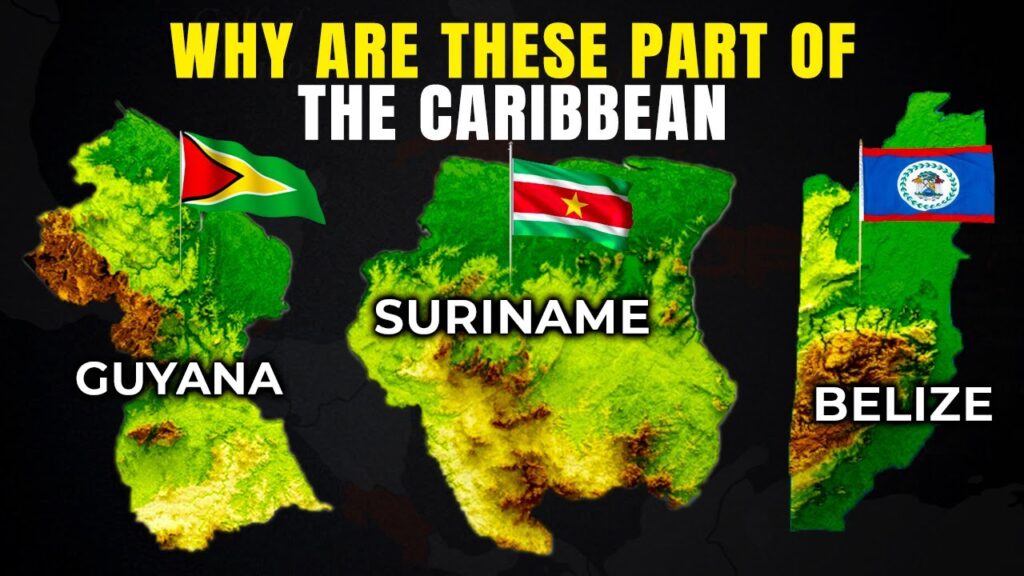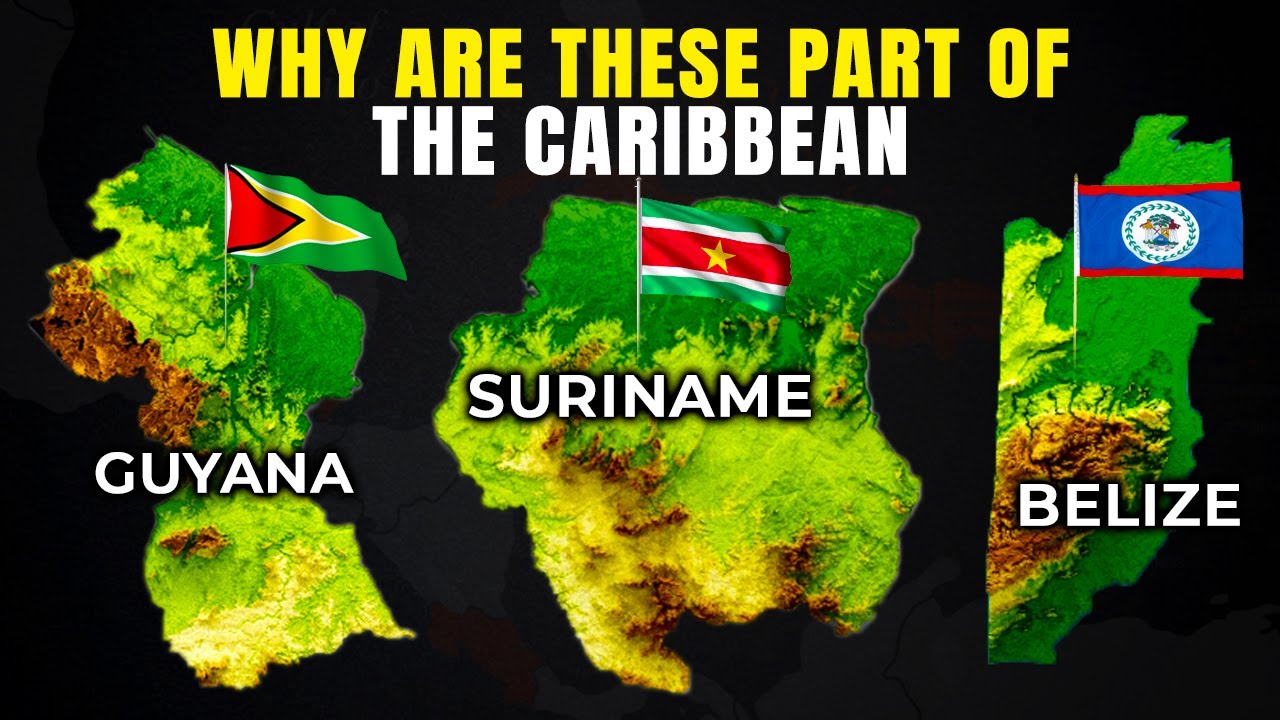Why Guyana, Suriname, and Belize are considered part of the Caribbean may seem like a puzzling question at first, considering their geographical location in South and Central America. However, these countries share a rich history, culture, and politics with the Caribbean, which clearly distinguishes them from their Latin American neighbors. Their colonial past, struggles for independence, and membership in the Caribbean Community (CARICOM) contribute to their identification as Caribbean countries. Furthermore, the English and Dutch language spoken in Guyana, Suriname, and Belize, as well as their shared culinary traditions, further solidify their inclusion in the Caribbean. The Caribbean embraces these nations and appreciates their unique contribution to the region.
Best Deals to Surinam by BOOKING.COM
Geographical Location
South and Central America
Guyana, Suriname, and Belize are geographically located in South and Central America. Guyana, situated in South America, shares borders with Venezuela, Suriname, and Brazil. Suriname, also in South America, borders Brazil, Guyana, and French Guiana. Belize, on the other hand, is in Central America and shares its borders only with Mexico and Guatemala. Despite being located in South and Central America, these three countries are considered part of the Caribbean. This raises the question: why are they grouped together with the Caribbean?
Historical Background
Colonial rule
The history of these countries, particularly their colonial rule, plays a significant role in their identification as part of the Caribbean. Guyana, Suriname, and Belize were all once British colonies. In the case of Belize and Guyana, they were predominantly British colonies, while Suriname was under British rule for a significant amount of time. This history of colonial rule aligns more closely with that of other Caribbean countries, where similar experiences of British colonialism were prevalent.
Struggles for independence
The struggles for independence in Guyana, Suriname, and Belize also align more closely with other Caribbean countries. These countries experienced a similar trajectory in their fight for emancipation from European powers and gained independence around the same time as many other Caribbean countries. The shared history of colonial rule and struggles for independence contributes to their identification as Caribbean countries.

FIND YOUR BEST HOTEL IN SURINAM WITH BOOKING.COM
Shared History, Culture, and Politics
The shared history, culture, and politics of Guyana, Suriname, and Belize further solidify their association with the Caribbean. The dynamics of the transatlantic slave trade resulted in a larger population of African descendants in these countries compared to their Latin American neighbors. While Latin American countries also received enslaved Africans, the proportion of the black population in Guyana, Suriname, and Belize is higher. This shared demographic creates a stronger cultural connection with the Caribbean.
Language also plays a role in defining these countries as part of the Caribbean. English is the official language in Guyana and Belize, while Suriname has Dutch as its official language. Suriname is the only country in South America with Dutch as the official language. Despite this, English is widely spoken in Suriname due to its cultural connections to the Caribbean. The language factor further strengthens the association of these countries with the Caribbean.
Furthermore, cultural aspects such as food, festive events, music, and sports align more closely with the Caribbean than with their Latin American neighbors. Guyana having a strong interest in cricket, a sport not widely popular in Latin America, is an example of this cultural alignment. Suriname’s musical genres, like Calypso, are also shared with the rest of the Caribbean. In Belize, the culinary traditions, such as boiled up or rice and beans, are staples that are shared with many Caribbean countries.
Political Integration
Membership in CARICOM is a significant factor in considering Guyana, Suriname, and Belize as part of the Caribbean. CARICOM is an intergovernmental organization that promotes economic integration and cooperation among Caribbean countries. Guyana, Belize, and Suriname are all members of CARICOM, which further solidifies their political integration with the Caribbean.
CARICOM provides numerous benefits and implications for these countries. The economic integration within CARICOM allows for free trade and movement of goods and services between member states. It also facilitates the coordination of foreign policies and promotes human and social development. CARICOM members vote unanimously on the international stage, demonstrating a shared vision and unity among the countries. The political integration through CARICOM strengthens the ties between Guyana, Suriname, and Belize and the Caribbean.

Conclusion
In conclusion, Guyana, Suriname, and Belize are considered Caribbean countries despite their geographical location in South and Central America. The shared history, culture, and politics of these countries align more closely with other Caribbean countries than with their Latin American neighbors. The history of colonial rule and struggles for independence, as well as the shared language (English and Dutch) and culinary traditions, contribute to their identification as part of the Caribbean. Additionally, their membership in CARICOM further solidifies their political integration with the Caribbean. Despite being geographically located in South and Central America, Guyana, Suriname, and Belize are embraced as valuable members of the Caribbean community.
